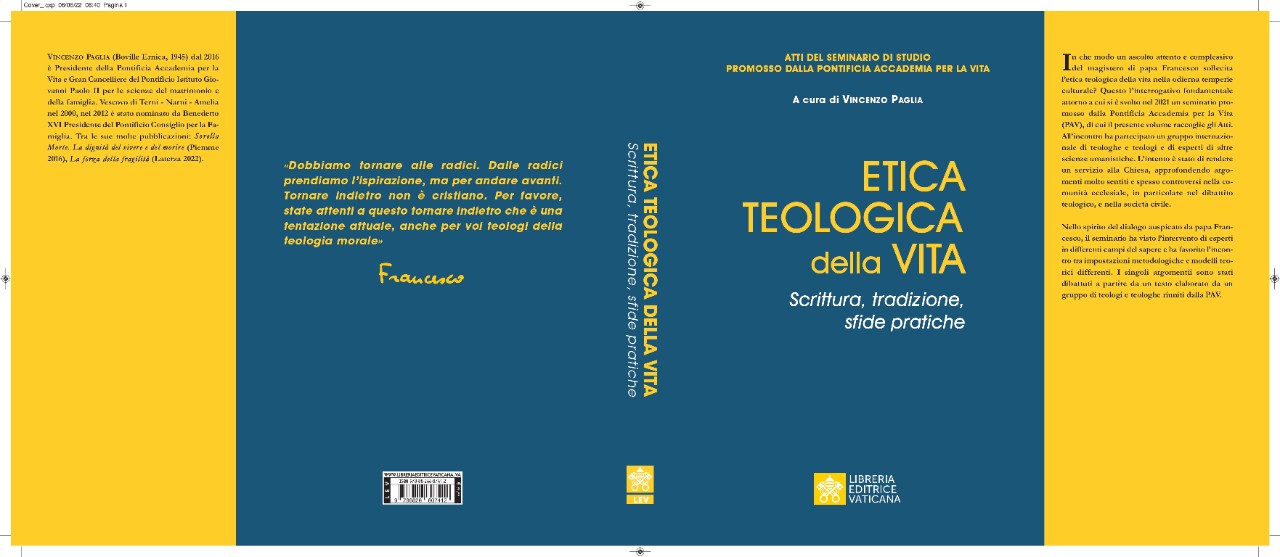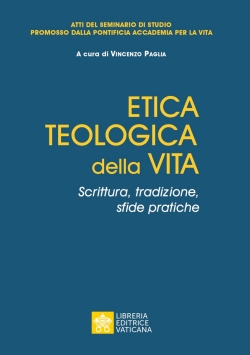Theological Ethics of Life - The Debate


On life. Theology and culture
By Andrea Grillo
https://www.cittadellaeditrice.com/munera/sulla-vita-teologia-e-cultura/
In the fine interview that Fabrizio Mastrofini conducted with Maurizio Chiodi for Settimana news, there is a way of approaching moral theology that is able to get us out of the shallows of a conception in which maximalism and abstractness prevent theology from truly mediating between human experience and the Word of God (Gaudium et spes 46). Apart from the individual topics covered in the interview, I’d like to focus on some points that go beyond moral theology and concern the very way of understanding theological work in the present context.
a) The obsession with infallibility.
Beginning with its formulation in the First Vatican Council, there is no doubt that the demand for infallibility to every proposition of Christian doctrine is an exaggerated form of thinking and ecclesial identity, especially since the difference between faith and customs has always been a necessary criterion of discernment. And this is where the first question comes in. While it is true that even in the conception of faith there now are cultural categories that deserve attention, certainly the doctrine concerning morals is originally affected by cultural conditioning that helped to establish it, but also marked its limit. The way we think about “Do Not Kill” and “Do Not Commit Adultery” is never pure, but is naturally marked by a culture of living and dying, of joining and generating. We must be absolutely clear in saying that the definitive Word of God comes into contact with dimensions that are not definitive at all. That is why claims of definitiveness on propositions of a moral nature are naïve in their attempt to hide, cover, conceal the cultural layer of which the propositions themselves are made.
b) Nature does not save
Quite exemplary of this procedure is one of the most contested passages of Humanae vitae, where the exercise of responsible parenthood is restricted to the use of so-called natural methods. It seems interesting that the men who procreate can be saved only to the extent that they remain animals, marked by natural rhythms and determined by this structure that they did not choose. And this seems to be the decisive element: that the generating man does not choose. Here we see a recourse to a strange anthropology, which suddenly, when it comes to procreation, forgets that man is indeed an animal, but endowed with speech and hands. Speech and hands provide men with a cultural experience in every situation. That is why it is difficult to justify on a moral level the difference between natural and artificial methods.
b) Theological work
In recent decades, a good deal of moral knowledge about life (bioethics) has been concerned with establishing definitive norms and identifying acts that are "intrinsically evil." This goal, made very clear in Veritatis splendor (1993), is accomplished through two steps:
- nullifying all circumstances, that is, history, affections, relationships, alliances, encounters. All this is unnecessary, because the intrinsically evil act dismiss the issue without taking into account any of this.
- That is why the same approach cannot withstand theological debate, precisely because of the fact that truth shines through in such a way that you either acknowledge it or keep silent.
This style of bioethics is part of the movement that since the 1980s has built a real “blocking device” in open contradiction to the best intentions of the Second Vatican Council. For this reason, as is recalled at the beginning of the interview, the impossibility of doing theology when there are boundaries in place (according to the nice expression used by Pope Francis) makes it necessary for the Church to have a way of talking about life that does not focus around the easy formula of "defending life."
This implies a new relationship between magisterium and theology, in which the authority of the former is enriched by the research of the latter, so that the sensus fidei of the people of God is not disregarded by the biased premises of an overconfident magisterium.
(Original test: Italian by prof. Andrea Grillo
https://www.cittadellaeditrice.com/munera/sulla-vita-teologia-e-cultura/
Translation by Leonardo Stefanucci)
Infallibility on moral issue? Interview with Father Maurizio CHIODI
Pope Francis: the duty of theologians is research, you can not do theology with a "no" in front of it (July, 30 2022): ENG - ITA - ESP - POR - FRA

The Vatican Publishing House (Libreria Editrice Vaticana) has published a text entitled Theological Ethics of Life. Scripture, tradition, practical challenges. The volume collects the Proceedings of an interdisciplinary study seminar promoted by the Pontifical Academy for Life.
The initiative takes its cue from the many solicitations Pope Francis is making to theologians in his speeches and documents. We hear people say that the Holy Father is not interested in theology - writes Abp. Paglia in the introduction - "but if we pay closer attention to what he is really saying, it does not really seem to be the case. So we asked ourselves, are we really listening to the teaching of Pope Francis? Are we taking his words seriously in a systematic way, and not just using some of his singular expressions outside the context of his overall reflection? Are we examining the implications that his considerations have for theological thought? If we consider Evangelii gaudium, Laudato si', Amoris laetitia, and Veritatis Gaudium in this perspective, we realize that the proposals contained therein open up a new horizon for theology and for the task of theologians, with a strong emphasis on dialogue and the mutual enrichment between different types of knowledge".
Other Links:
Review Essay July 13, 2022 EDT
Theological Ethics of Life: A New Volume by the Pontifical Academy for Life